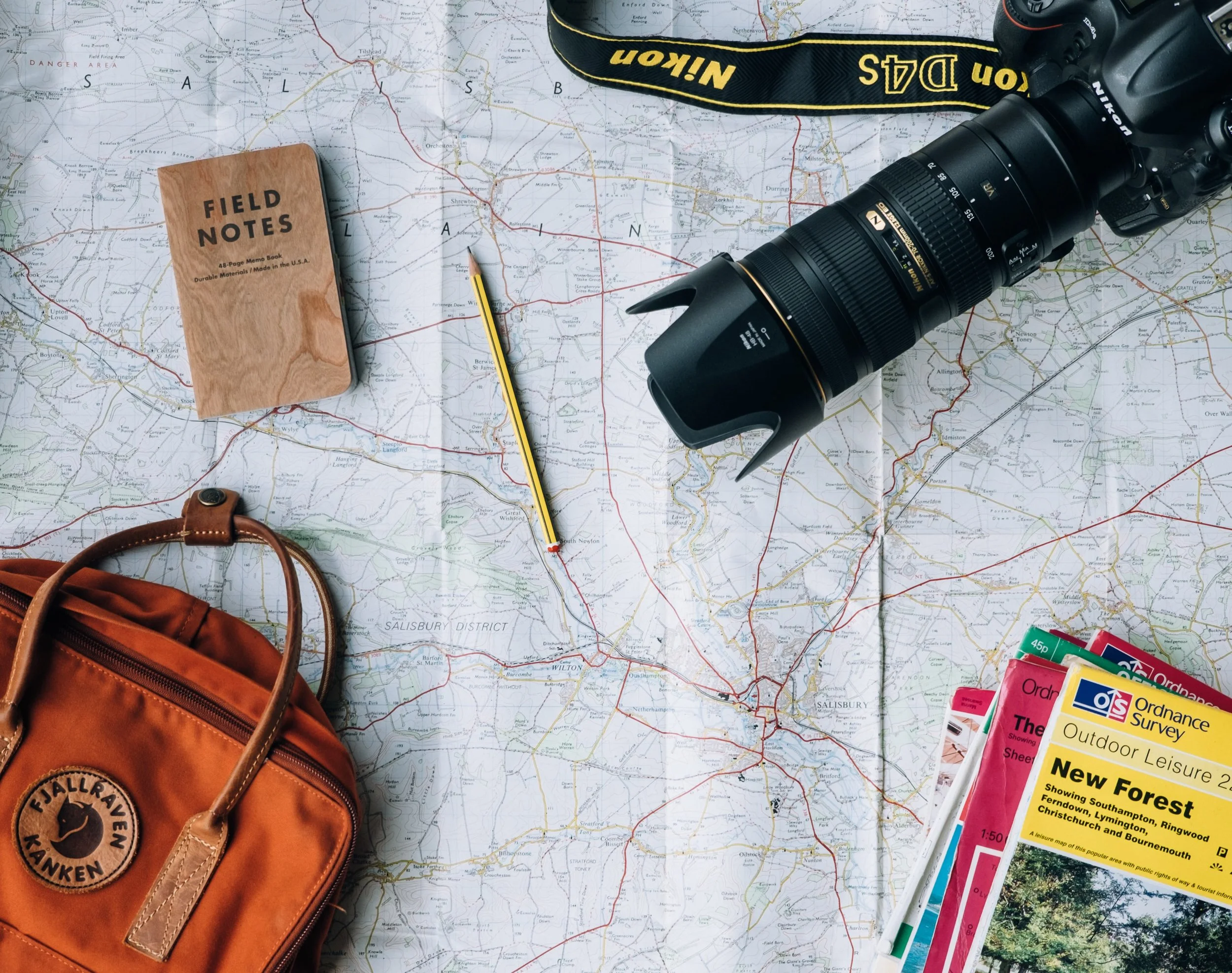Travelling has become so much more mainstream and widely enjoyed over the past few decades. International flights can be booked super cheap these days and it’s quick and easy to sort out online too.
The only thing is that with long haul travel comes a few downsides, which are there to take their toll on your body. This isn’t designed to scare you from travel, but rather just a way to highlight some of the things that put stress on your body so that you can address them if you’re a frequent flyer.
Let’s take a look at 5 ways you're damaging your health while travelling.
Issues with sleep
Image by Ilnur Kalimullin
Sleep is vital. Sleep is necessary. And sleep is also difficult when you’re attempting to get some shut eye on a flight. Then there’s the fidget next to you, the kid kicking your seat behind you and the awkward flight times; all of which are pretty hot at disturbing your sleep.
Not getting good sleep is bad news, and losing it as part of a healthy lifestyle can lead to a number of issues with your health including:
- Increased appetite
- Poor decision making
- Debilitated immune function
- Increased insulin sensitivity
- Leptin sensitivity issues
- Brain fog
- Touchiness
If you want to successfully overcome these problems you can use tried and tested hacks that will boost your chances of enjoying sound slumber.
To overcome issues with sleep, you can:
- Take your own pillow
- Use an eye mask and earplugs
- Take melatonin pills after dark on the day you travel
Jet lag
Image by Eva Darron
If you’ve been zipping through a host of different time zones then you will be able to recollect the unwelcome feeling of jet lag.
If you haven’t felt jet lag before and you want to know what’s in store, then there can be tiredness, lethargy, distant-feeling and just wanting to catch forty winks. The only problem here is that your sleep cycles are out of sync.
With the disruption jet lag brings, you can feel really hungry and want to eat a meal, but it’s the middle of the night, for example.
Jet lag isn’t just annoyance, it can be more serious than that, and research has found that an interference of your bodies cycles can lead to:
- Obesity
- Insulin resistance (leading to diabetes)
- Higher rates of cancer
- Heart disease
- Leptin resistance
- Diabetes
To ease jet lag, you can:
- Consume ample amounts of water
- Sleep if it's a normal time for sleeping
- Take an eye mask and earplugs to help with sleep
- Stretch and regularly walk around the plane
Low standards of air quality
Image by Olha Zaika
Due to the way flying in a plane works, air is required to be circulated within the aircraft. As you can imagine, this throws up a host of potential health problems because the supply of air is limited and needs to be ‘shared’ throughout the entire number of passengers on board.
Due to air quality being below the usual standards you’d be used to, there are a handful of health issues that are associated with poor air quality during flights, such as:
- Increased levels of ozone
- High levels of VOC's and aerosols
- Lowered levels of oxygen
- Added levels of CO2
- Very low levels of humidity
To ease issues with air quality, you can:
- Wear a face mask in heavily populated areas
- Use a nasal saline spray
- Stay hydrated
The issues we’ve mentioned above can result in headaches, nosebleeds, sinus problems, dehydration and a bigger toxin burden on the body.
Suffering from dehydration
LifeStraw Bottle is a great travel companion - it helps you keep hydrated wherever you go
A very well-known issue that comes with flying is dehydration, which is caused by the low humidity levels in the plane’s cabin. This, paired with the wrong drinks options on board your flight (we’re talking caffeine and alcohol here) can lead to higher rates of dehydration.
This is obviously not good because dehydration has the potential to cause:
- Confusion
- Dizziness
- Muscle cramps and spasms
- Fatigue
- Headaches
- Nosebleeds
Dehydration can be prevented by drinking water instead of booze and coffee, so remember that when you’re about to tuck into the free drinks!
To overcome hydration, you can:
- Use a hydration supplement
- Drink water
- Avoid caffeine and alcohol
- Use eye drops
- Use a wet handkerchief over your mouth
and nose to moisturise the air you breathe
Airport-related stress
Image by Briana Tozour
Your body has thresholds for everything, including stress. We’re quite lucky that our body’s ability to increase stress resilience among other things can help to keep your stress levels in check.
However, we’ve all encountered the stress-inducing scenarios that come with visiting airports. From the hordes of people rushing around to check-ins, delayed flights, security and dealing with luggage, these are just a handful of the things that can increase stress on the body.
Stress is an inbuilt mechanism to help us survive in certain situations, and this is designed to help us react, once activated, in life or death situations. This short-term answer is intended to help you overcome the stressor.
The stresses that are brought about by the things we touched on earlier aren’t those life and death situations that stress was originally made to deal with in our bodies, but the brain doesn’t think of it in that way and will react to a situation as it sees fit.
The hormonal consequences of chronically activated stress response produce an assortment of health issues such as:
- High blood pressure
- Insulin and leptin resistance
As you’re about to do some frequent and more than likely long-haul flights, you’ll want to reduce stress as best you can.
To overcome airport stress, you can:
- Arrive extra early
- Fly in the morning to avoid anticipation and build up of stress
- Check-in online via an app
- Take advantage of and relax in an airport lounge
This post was created in collaboration with Sarah Cummings from SleepAdvisor.org
and it may contain affiliate links, which means that if you buy something through those links, we will get a small commission fee that will keep our travels going. The commission fee will not affect the price you will pay & as always all opinions are our own :)
Header image by Leandro Maldini











































